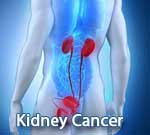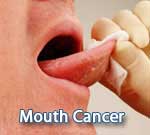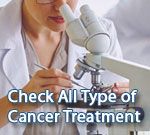Lymphoma Primary Central Nervous System
Follow-up Care
Non-Hodgkin lymphoma and its treatment can lead to other health problems. You may receive supportive care to prevent or control these problems and to improve your comfort and quality of life during treatment.
You may receive antibiotics and other drugs to help protect you from infections. Your health care team may advise you to stay away from crowds and from people with colds and other contagious diseases. If an infection develops, it can be serious, and you will need treatment right away.
Non-Hodgkin lymphoma and its treatment also can lead to anemia, which may make you feel very tired. Drugs or blood transfusions can help with this problem.
Nutrition and Physical Activity
It's important for you to take care of yourself by eating well and staying as active as you can.
You need the right amount of calories to maintain a good weight. You also need enough protein to keep up your strength. Eating well may help you feel better and have more energy..
Sometimes, especially during or soon after treatment, you may not feel like eating. You may be uncomfortable or tired. You may find that foods do not taste as good as they used to. In addition, the side effects of treatment (such as poor appetite, nausea, vomiting, or mouth sores) can make it hard to eat well. Your doctor, a registered dietitian, or another health care provider can suggest ways to deal with these problems.
Many people find they feel better when they stay active. Walking, yoga, swimming, and other activities can keep you strong and increase your energy. Exercise may reduce nausea and pain and make treatment easier to handle. It also can help relieve stress. Whatever physical activity you choose, be sure to talk to your doctor before you start. Also, if your activity causes you pain or other problems, be sure to let your doctor or nurse know about it.
Follow-up Care
You'll need regular checkups after treatment for non-Hodgkin lymphoma. Your doctor will watch your recovery closely and check for recurrence of the lymphoma. Checkups help make sure that any changes in your health are noted and treated as needed. Checkups may include a physical exam, lab tests, chest x-rays, and other procedures. Between scheduled visits, you should contact the doctor right away if you have any health problems.
Sources of Support
Learning you have non-Hodgkin lymphoma can change your life and the lives of those close to you. These changes can be hard to handle. It's normal for you, your family, and your friends to have many different and sometimes confusing feelings.
Concerns about treatments and managing side effects, hospital stays, and medical bills are common. You may also worry about caring for your family, keeping your job, or continuing daily activities.
Here's where you can go for support:
- Doctors, nurses, and other members of your health care team can answer many of your questions about treatment, working, or other activities.
- Social workers, counselors, or members of the clergy can be helpful if you want to talk about your feelings or concerns. Often, social workers can suggest resources for financial aid, transportation, home care, or emotional support.
- Support groups can also help. In these groups, patients or their family members meet with other patients or their families to share what they have learned about coping with the disease and the effects of treatment. Groups may offer support in person, over the telephone, or on the Internet. You may want to talk with a member of your health care team about finding a support group.





































